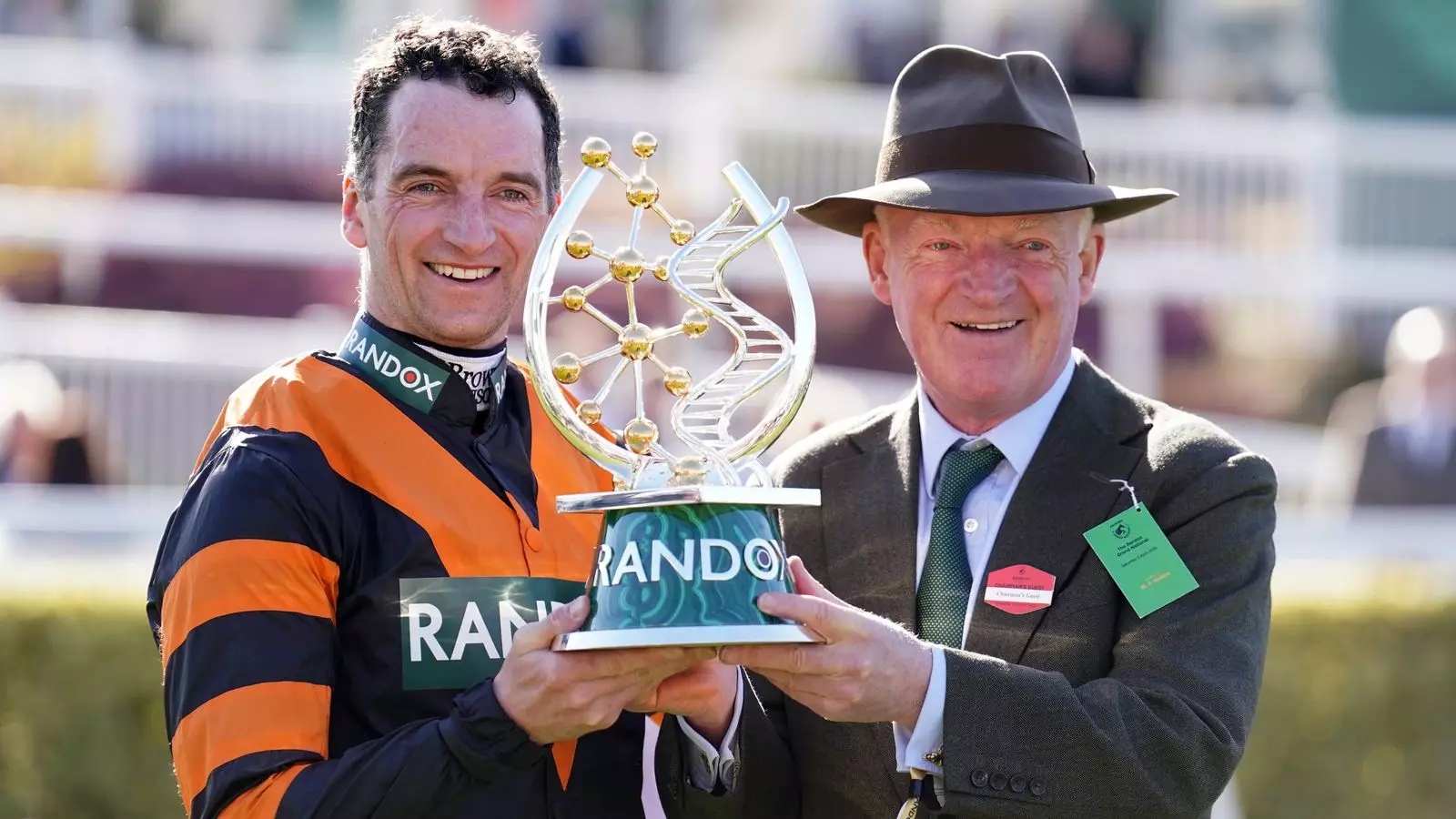In what can only be described as a spectacular showcase of equestrian prowess and deep familial bonds, Patrick Mullins clinched the Grand National aboard Nick Rockett, a horse trained by none other than his father, Willie Mullins. With odds set at 33/1, Nick Rockett’s victory is a testament not just to horse racing’s unpredictable nature, but also to the extraordinary skill and dedication within a family that has become the cornerstone of this sport in Ireland. This win marks a momentous occasion, as it represents both a continuation of a legacy and an inspiring chapter in the world of amateur riding.
The race itself saw a 1-2-3 finish for the Mullins family, with Patrick’s win complemented by the second-place finish of I Am Maximus and the third-place success of Grangeclare West. The spectacle at Aintree, watched by an intense crowd of 70,000, echoes the affectionate chorus of generations past who have revered the sport. This kind of dominance is rare, and Mullins Sr.’s training acumen plays a crucial role in creating racehorses of such caliber.
A Ride of Intensity and Emotion
Patrick Mullins’ post-race reflections reveal a whirlwind of emotions that encapsulate not only the thrill of victory but also the gravity of the moment. He admitted to battling with his instincts as a jockey; the early part of the race demanded restraint, and there were moments when doubt crept in. The sheer weight of heritage hung on him, making every jump a blend of technical finesse and emotional turmoil. “I was wondering at Canal Turn had I lost too much ground,” he stated. This candid recognition of vulnerability adds a layer of genuine connection to a sport often dominated by bravado.
For the novice or the casual observer, the Grand National can seem purely thrilling; yet, beneath that surface lies a harrowing reality of risk and reward. Mullins’ heartfelt narration about the race reveals the deeper bonds formed between horse and rider, an understanding forged through countless hours spent together in training. The victory transcended the accolades and trophies; it sparked a profound emotional lifetime dream realized before the eyes of a father who has watched his son pursue this path since childhood.
A Tribute to a Lost Loved One
Indeed, one of the more poignant stories emerging from this event is the heartfelt tribute offered by Stewart Andrew, the owner of Nick Rockett. His poignant words following the race were drenched in memory, reflecting a personal heartbreak mingled with joyous triumph. The loss of his wife, Sadie, just months before was clearly weighing heavily on him, and the thought that she would have cherished this moment added bittersweet poignancy to the celebration. It is moments like these that shed light on the human connections that deeply infiltrate sports, rendering them more than mere competition.
Andrew’s acknowledgment of his wife’s spirit in the race underscores another dimension of the Grand National—a connection that inspires both while alive and beyond. Such narratives remind us that sports can bridge personal grief, creating enduring legacies that echo far longer than the victory itself.
The Ongoing Debate on Safety
While the heart-stirring triumph of Nick Rockett captured the emotional core of the Grand National, the conversation surrounding the safety of such renowned races cannot be overlooked. Often branded as one of the most perilous events in the equestrian calendar, the Grand National has sparked tireless debates over safety protocols and animal welfare. Fences that dwarfed horses since time immemorial now present a dual challenge: tradition and safety.
The introduction of reforms—such as reducing the number of competitors and modifying the physical structures of the race—shows a shifting awareness that balances risk with responsibility. These changes, however, must be scrutinized and adapted as necessary, for the love of the sport cannot supersede the need for compassion and fairness toward both horses and riders.
The Mullins family’s narrative intertwines with broader thematic currents in society—legacy, loss, and the ongoing evolution in terms of sportsmanship and ethics. It’s vital to preserve this rich history while ensuring that future generations can enjoy the beauty of the Grand National without the specter of undue danger looming over this cherished tradition.

Leave a Reply